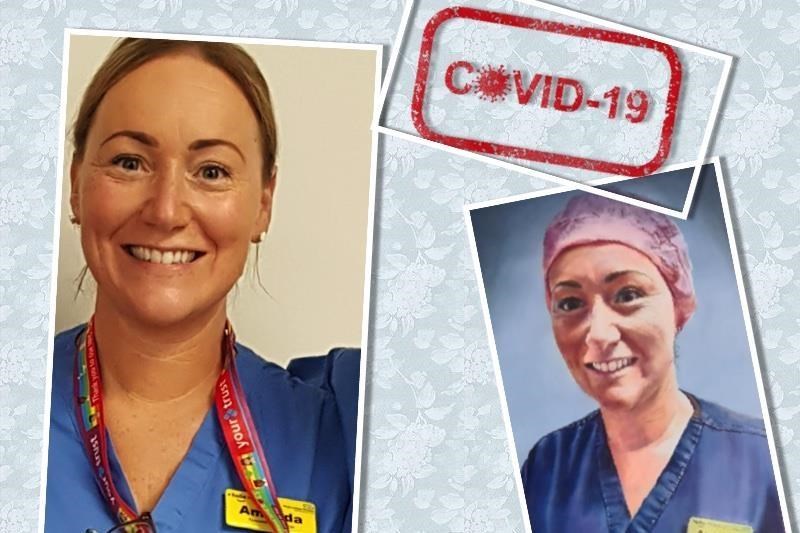‘Think carefully before you say no’ – frontline dental nurse urges colleagues to have coronavirus vaccine
Published: 11/12/2020
A dental nurse on the coronavirus frontline is urging colleagues to have the vaccine when it’s offered – and ignore ‘opinions and misinformation’ on social media.
Amanda Hunter was redeployed to the critical care unit at London’s King's College Hospital in March whilst working as a dental nurse in the hospital’s paediatric department.
She is one of the many dental professionals battling coronavirus alongside medical teams. She had the first of two Pfizer/BioNTech COVID-19 vaccinations on Wednesday (9 December).
Her second dose is booked for 6 January and, seven days after that vaccine, Amanda will be immune to COVID-19.
She said: ‘As a healthcare professional, I have a duty of care to protect my patients, which is why I elected to have the vaccine. I would be devastated if I caught COVID-19 and passed it on to my patients.
‘I was given an information sheet that gave a brief outline and mentioned side-effects. I gave it considerable thought but felt the risk is lower with the vaccine. Of course, some people will have a reaction but, on the whole, many more lives will be saved. For those on social media, I ask that you read the facts and not to rely on someone's opinion.
‘Think about the effects of COVID-19 both short term and long term. If you have the vaccine, you reduce the seriousness. Speak with your GP if you have concerns. Not everyone will have it but think very carefully before you say no.’
A recent study shows the link suggests that misinformation on social media is fuelling vaccine hesitancy.
The research team, led by Professor Heidi Larson, of the London School of Hygiene and Tropical Medicine, asked 4,000 people whether they'd be willing to take a coronavirus vaccine.
The figures showed 54% of people would be happy to get vaccinated but, after viewing misinformation online, that figure dropped by 6.4% to 46.7%.
It's estimated that, for herd immunity to be achieved, between 50-80% of the population would need to get a jab.
During her time working in the critical care unit, Amanda said she has faced enormous mental and physical challenges, but that dental teams have been praised for their efforts.
She explained: ‘Working on critical care is nothing like my normal day-to-day job. I have done and experienced things I never thought I would have in my lifetime. However, I feel lucky and privileged to have been a part of the critical care team at King's College Hospital, as the nurses and doctors have supported me through this. I will never forget the colleagues and friends who have touched so many lives in a positive way, including mine.’
She added: ‘My medical colleagues have fed back to management that the dental nurses have stood out the most during this pandemic and they found our help, dedication and commitment outstanding.
‘As dental nurses, we have experience in dealing with different patients and their families. We do dentistry because we are compassionate and care very much about people and want to help in any way we can. We have a basic knowledge of the human body and are trained in Basic Life Support, with some of us in Intermediate and Advanced Life support.
‘We have basic knowledge of ventilators and anaesthetic drugs, as some of us work in theatres and do pre-assessments for general anaesthetics. We are skilled enough to think outside the box and be an advocate for the patient to ensure they get the best treatment.’
Author: Julie Bissett


.jpg?width=300&height=200&scale=canvas)










